Awesome DevOps & SRE Book Summaries (Top 20+)
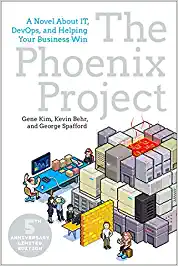
The Phoenix Project
Author: Gene Kim, Kevin Behr, and George Spafford
Summary: This book is a story of a fictional company that is struggling with IT problems, including late projects, poor quality, and low morale. The story follows an IT manager as he learns about the DevOps movement and applies its principles to transform his team and the company. The book provides an engaging and practical introduction to DevOps principles and practices, including continuous delivery, automation, and collaboration.

The Unicorn Project
Author: Gene Kim
Summary: This book tells the story of a fictional company called Parts Unlimited and their struggles to modernize their IT department and stay competitive in a rapidly changing market. Through the story of Parts Unlimited, Kim illustrates the principles and practices of DevOps, a set of software development and IT operations practices that emphasizes collaboration, automation, and continuous improvement. Emphasizes the importance of creating a culture of innovation and experimentation within an organization, and breaking down silos between different departments.
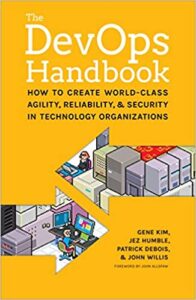
The DevOps Handbook
Author: Gene Kim, Jez Humble, Patrick Debois, and John Willis
Summary: This book is a comprehensive guide to DevOps, covering principles, practices, and case studies from real-world organizations. The book covers topics such as continuous delivery, automation, monitoring, and culture change, and provides practical advice for implementing DevOps in your organization. The book also discusses the benefits of DevOps, including faster time to market, higher quality, and greater customer satisfaction.
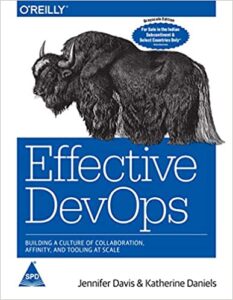
Effective DevOps
Author: Jennifer Davis and Ryn Daniels
Summary: This book focuses on the cultural and organizational aspects of DevOps, providing practical advice for building a collaborative and effective DevOps culture. The book covers topics such as communication, feedback, empathy, and team structure, and provides real-world examples and case studies. The book is a good resource for anyone looking to build a high-performing DevOps team or improve their team's collaboration and communication.
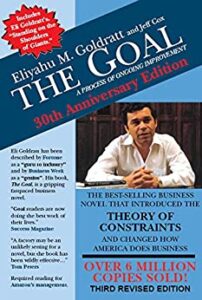
The Goal
Author: Eliyahu M. Goldratt
Summary: This book is a story of Alex Rogo, a plant manager who is struggling to improve the performance of his factory. As he faces the threat of closure, Rogo meets a mentor who introduces him to the Theory of Constraints, a management philosophy that emphasizes identifying and addressing bottlenecks in a production process. Through Rogo's journey, Goldratt illustrates the principles of the Theory of Constraints, including the importance of measuring performance, identifying constraints, and continually improving processes. The book is widely regarded as a seminal work in the field of operations management and has had a profound impact on the way businesses approach process improvement.

Theory of Constraints
Author: Eliyahu M. Goldratt
Summary: This book outlines the principles of the Theory of Constraints (TOC), a management philosophy that emphasizes identifying and addressing bottlenecks in a production process. Goldratt argues that constraints are the most important factor in any production system and that by focusing on identifying and addressing them, organizations can significantly improve their performance. The book presents a step-by-step process for implementing the TOC, including identifying constraints, exploiting them, and subordinating everything else to them. It also emphasizes the importance of ongoing improvement and highlights the role of measurement in identifying and addressing constraints. The book is widely regarded as a seminal work in the field of operations management and has had a profound impact on the way businesses approach process improvement.
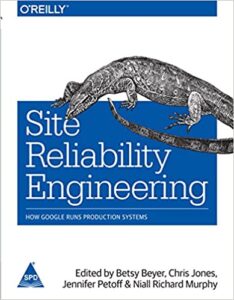
Site Reliability Engineering
Author: Betsy Beyer, Chris Jones, Jennifer Petoff, and Niall Richard Murphy
Summary: This book is a collection of essays from Google's Site Reliability Engineering (SRE) team, which is responsible for ensuring the reliability and availability of Google's services. The book covers topics such as incident response, monitoring, automation, and capacity planning, and provides practical advice for running reliable and scalable systems. The book also discusses the SRE culture and the role of SRE in DevOps organizations.
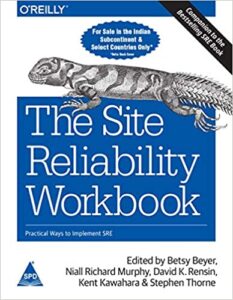
The Site Reliability Workbook
Author: Betsy Beyer, Niall Richard Murphy, David K. Rensin, Kent Kawahara, and Stephen Thorne Summary: "The Site Reliability Workbook" is a practical guidebook for implementing Site Reliability Engineering (SRE) principles in a production environment. The book covers a wide range of topics related to SRE, including incident response, monitoring and alerting, capacity planning, change management, and testing. One of the key themes of the book is the importance of collaboration and communication between development and operations teams. The authors use real-world examples and case studies to illustrate the principles and practices of SRE, and provide practical exercises and checklists to help readers implement these practices in their own organizations.
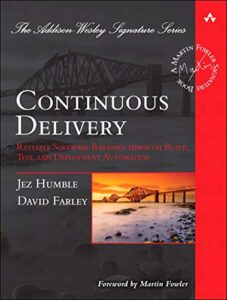
Continuous Delivery
Author: Jez Humble and David Farley
Summary: This book provides a comprehensive guide to continuous delivery, which is a key DevOps practice that enables teams to release software rapidly and reliably. The book covers the entire delivery pipeline, from version control to deployment, and provides practical advice and examples for implementing continuous delivery in your organization. The book also discusses the cultural, organizational, and technical challenges of continuous delivery and how to overcome them.
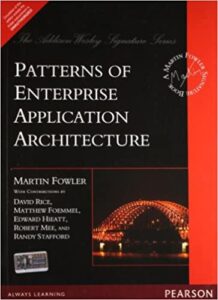
Patterns of Enterprise Application Architecture
Author: Martin Fowler
Summary: "This is a seminal book on software architecture that provides a collection of patterns and best practices for designing and building enterprise applications. The book covers a wide range of topics, including database design, data access patterns, architectural patterns, and messaging patterns. It emphasizes the importance of designing software systems that are scalable, maintainable, and extensible. The book is widely regarded as a classic in the field of software architecture and has had a profound impact on the way developers approach the design of enterprise applications.
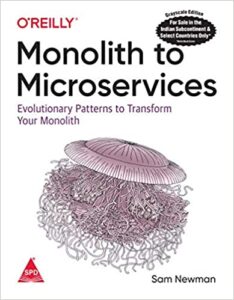
Monolith to Microservices
Author: Sam Newman Summary: This is a practical guidebook for modernizing legacy monolithic applications into microservices-based architectures. The book covers a wide range of topics, including the benefits and drawbacks of microservices, strategies for identifying and defining microservices, and techniques for migrating from a monolithic architecture to a microservices architecture. It also provides practical advice on how to manage microservices once they are deployed, including monitoring, testing, and deployment strategies. Overall, the book is a valuable resource for anyone interested in modernizing their software architecture and taking advantage of the benefits of microservices.

Kubernetes - Up and Running
Author: Brendan Burns, Kelsey Hightower, and Joe Beda
Summary: is a comprehensive guide to using Kubernetes to deploy and manage containerized applications. The book covers a wide range of topics, including the architecture of Kubernetes, how to deploy and scale applications on Kubernetes, and how to troubleshoot common issues. It also provides practical advice on how to manage Kubernetes clusters and how to integrate Kubernetes with other tools and platforms. Overall, the book is an essential resource for anyone interested in using Kubernetes to deploy and manage containerized applications in a production environment.
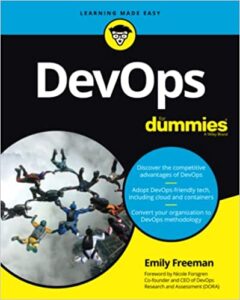
DevOps for Dummies
Author: Emily Freeman
Summary: This book is a beginner's guide to DevOps, covering basic concepts and practices in an accessible and engaging way. The book covers topics such as continuous integration, continuous delivery, infrastructure as code, and monitoring, and provides practical examples and advice for implementing DevOps in your organization. The book is a good starting point for anyone new to DevOps or looking to refresh their knowledge.
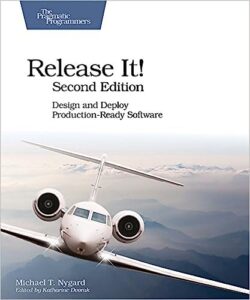
Release It!: Design and Deploy Production-Ready Software
Author: Michael T. Nygard
Summary: This book is a guide to building and deploying production-ready software, covering topics such as reliability, scalability, and fault tolerance. The book provides practical advice for designing and testing systems that can handle the challenges of production environments, such as network failures, database
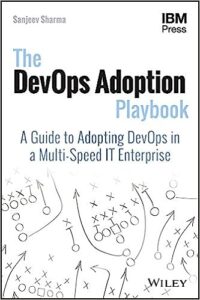
The DevOps Adoption Playbook
Author: Nicole Forsgren, Jez Humble, and Gene Kim Summary: This book is based on a multi-year research study that investigates the relationship between DevOps practices and organizational performance. The book provides data-driven insights and practical advice for building and scaling high-performing technology organizations. The book covers topics such as continuous delivery, automation, culture change, and measurement, and provides guidance for applying DevOps principles in different organizational contexts.
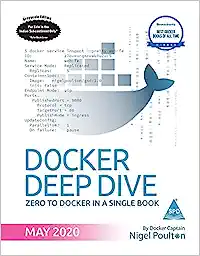
Docker Deep Dive
Author: Nigel Poulton
Summary: This book is a comprehensive guide to Docker, which is a popular containerization technology that is widely used in DevOps environments. The book covers topics such as container fundamentals, Docker architecture, networking, storage, and security, and provides practical examples and advice for using Docker in production environments. The book is a good resource for anyone looking to learn Docker or improve their Docker skills.
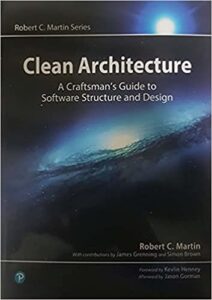
Clean Architecture
Author: Robert Martin
Summary:
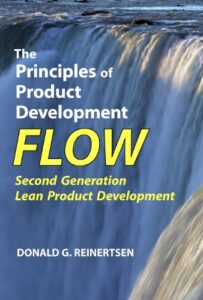
Principles of Product Development Flow
Author: Donald Reinertsen
Summary:
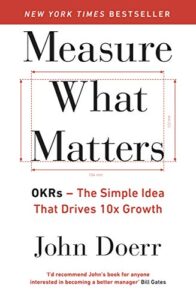
Measure what matters
Author: John Doerr Summary:
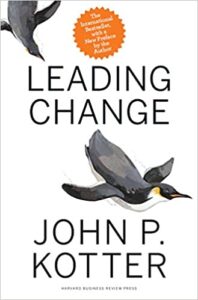
Leading Change
Author: John Kotter
Summary:
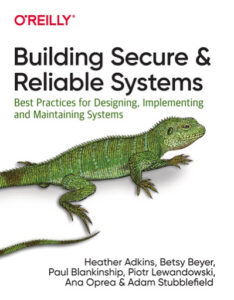
Building Secure & Reliable Systems
Author: Heather Adkins, Betsy Beyer, Paul Blankinship, Piotr Lewandowski, Ana Oprea, Adam Stubblefield
Summary:
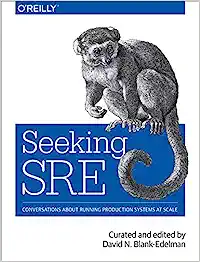
Seeking SRE
Author: David N. Blank-Edelman Summary:
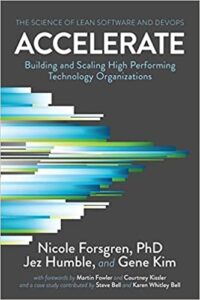
Accelerate
Author: Nicole Forsgren PhD, Jez Humble, et al. Summary:
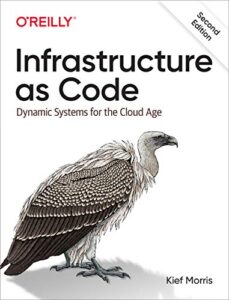
Infrastructure as Code
Author: Kief Morris
Summary:
